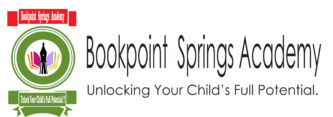Child Protection Policy
A child is anyone who has not yet reached the age of 18.
Harm means ill-treatment or impairment of health and development.
Development means physical, intellectual, emotional, social or behavioral development; Health includes physical and mental health;
Ill-treatment includes sexual abuse and other forms of ill-treatment which are not physical.
Types of abuse and neglect
Abuse: a form of maltreatment of a child. Somebody may abuse or neglect a child by inflicting harm, or by failing to act to prevent harm. They may be abused by an adult or adults or another child or children.
Physical abuse: a form of abuse which may involve hitting, shaking, throwing, poisoning, burning or scalding, drowning, suffocating or otherwise causing physical harm to a child.
Emotional abuse: the persistent emotional maltreatment of a child such as to cause severe and adverse effects on the child’s emotional development. It may involve conveying to a child that they are worthless or unloved, inadequate, or valued only in so far as they meet the needs of another person.
Neglect: Neglect may involve a parent or caregiver failing to:
- Provide adequate food and clothing, shelter (including abandonment)
- Protect a child from physical and emotional harm or danger
- Ensure access to appropriate medical care or treatment.
Sexual Abuse: Sexual Abuse involves forcing a young person to take part in sexual activities, including prostitution, whether or not the child is aware of what is happening. The activities may involve physical contact, including penetrating (e.g rape, or oral sex).
They may include non-contact activities, such as involving children in looking at, or in the
production of, sexual online images, watching sexual activities, or encouraging children to behave in sexually inappropriate ways.
SECTION 1: Safeguarding Children Policy
Bookpoint Springs Academy recognizes that safeguarding encompasses the duties of child protection and promoting the rights and welfare of children. As such, it is everyone’s responsibility to safeguard children. Specifically, these responsibilities apply to all staff, working in the school, including contractors and visitors during any interactions they may have with children. It will be available to all interested parties on our website and on request from office.
Student Enlightenment.
At Bookpoint Springs Academy we will teach children to understand and manage risk, through our:
- Lessons, such as drama
- Assemblies and special days
- E-Safety programme
- Anti-bullying programme
Partnership with Parents and Guardians.
Whilst we may, on occasion, need to make reports without consultation with parents, we will make every effort to maintain a positive working relationship with them whilst fulfilling our duties to protect any child. Children will be given a proper explanation (appropriate to age &
understanding) of what action is being taken on their behalf and why. We will endeavor always to preserve the privacy, dignity and right to confidentiality of the child and parents.
What to do if a Child is at risk or immediate Harm.
If you are seriously concerned about a child’s safety, always call the office or police. If, at any point, there is risk of immediate harm to a child a report should be made to children’s department immediately. Anybody can make a report.
Confidentiality and Sharing Information.
- We cannot agree to keep anything that you tell us secret, but we will only share information with the people that we need to, in order to ensure that children and others are kept safe .
- Every effort is made to prevent unauthorized access and sensitive information is not stored on laptops, computers which by the nature of their portability, could be lost or stolen. All laptops should have encrypted hard drives to prevent access to information should the device be lost or stolen.
- If it is necessary to store child protection information on portable media, such as a CD or flash
drive, these items must be encrypted and kept in locked storage. - The only time we would not share information with the family would be if it could potentially put
the child at further risk of harm to do so.

“The dream begins with a teacher who believes in you, who tugs and pushes and leads you to the next plateau, sometimes poking you with a sharp stick called ‘truth.'” –
— Dan Rather
